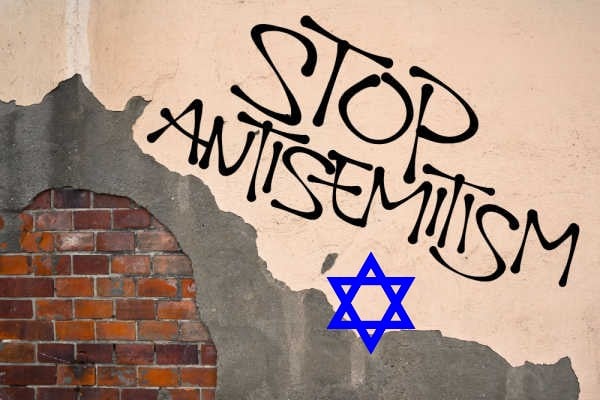The bill in its present form lacks contemporary examples such as ‘claiming that the existence of a State of Israel is a racist endeavor.’
By David Swindle
Indiana Gov. Eric Holcomb vetoed a bill defining antisemitism on Monday, citing “confusing language” that not only didn’t include the contemporary examples appended to a widely-adopted international definition of Jew-hatred but that “can be read to exclude those examples.”
House Enrolled Act 1002 originally included the International Holocaust Remembrance Alliance’s (IHRA) working definition of Jew-hatred, but the state Senate subsequently removed the 11 contemporary examples appended to the IHRA definition.
Jewish groups called for Holcomb to veto the bill without the contemporary examples, which include “claiming that the existence of a State of Israel is a racist endeavor.”
Rabbi Mark Goldfeder, CEO and director of the National Jewish Advocacy Center, told JNS at the time that the bill, without the examples, “has the potential to do great harm to our community.”
“I pray that the governor will responsibly veto it so that they can actually get it done right,” Goldfeder told JNS. “As someone dedicated to helping get the IHRA definition passed and put into use, it pains me to have to say this, but the Indiana bill violates the first principle of legislation, which is simply ‘Do no harm.’”
Holcomb, explaining his veto on Monday, said that “the confusing language included in the bill could be read to exclude those examples.”
“Therefore I must veto HEA 1002. However, I also refuse to leave a void as to Indiana’s stance on antisemitism,” he stated. “That is why I am happy to share I have also signed a proclamation reiterating that Indiana condemns all forms of antisemitism and ensures we join numerous states and countries by supporting the entire IHRA definition with its inextricable examples.”
“While there can be no exhaustive definition of antisemitism because it takes many forms, the International Holocaust Remembrance Alliance working definition on antisemitism and the examples included therein,” the governor stated in the proclamation, “has been adopted or endorsed by federal agencies and numerous states, cities, educational institutions, countries and other organizations.”
“My administration believes the working definition is a vital resource for combating antisemitism that, importantly, can help facilitate constructive discourse, greater understanding, as well as a more thoughtful response to this harmful and wholly unacceptable bigotry that impacts us all,” he added.
The Consulate General of Israel to the Midwest thanked Holcomb for his proclamation endorsing the IHRA definition and its examples and called the governor a “steadfast” supporter of the Jewish state.
“We appreciate the Indiana General Assembly for overwhelmingly passing HEA 1002 and standing with the Indiana Jewish community to confront increasing antisemitism,” it stated. “However, Gov. Holcomb’s veto correctly addresses concerns that the final legislation did not incorporate the entire definition including the contemporary examples.”
The Conference of Presidents of Major American Jewish Organizations, Jewish Federations of North America, Israeli-American Council, StandWithUs, Christians United for Israel, Combat Antisemitism Movement and Hadassah, The Women’s Zionist Organization of America supported Holcomb’s veto in a joint statement.
“The bill contained flaws that would have hindered the full deployment of the definition to protect Indiana’s Jewish community,” the seven groups wrote. “For that reason, we thank Gov. Holcomb for engaging with and understanding the concerns expressed by the Jewish community, and ultimately vetoing this legislation.”
“The scope and utility of the IHRA definition lie in the examples it provides, which capture not only traditional anti-Jewish hatred and Holocaust denial but also modern antisemitism, which targets the State of Israel based on its Jewish foundations and character,” the groups added.
Sacha Roytman, CEO of Combat Antisemitism Movement, stated that the “examples are essential for effectively identifying and thus combating antisemitism.
“Without them, the legislation became counterproductive,” he stated.
